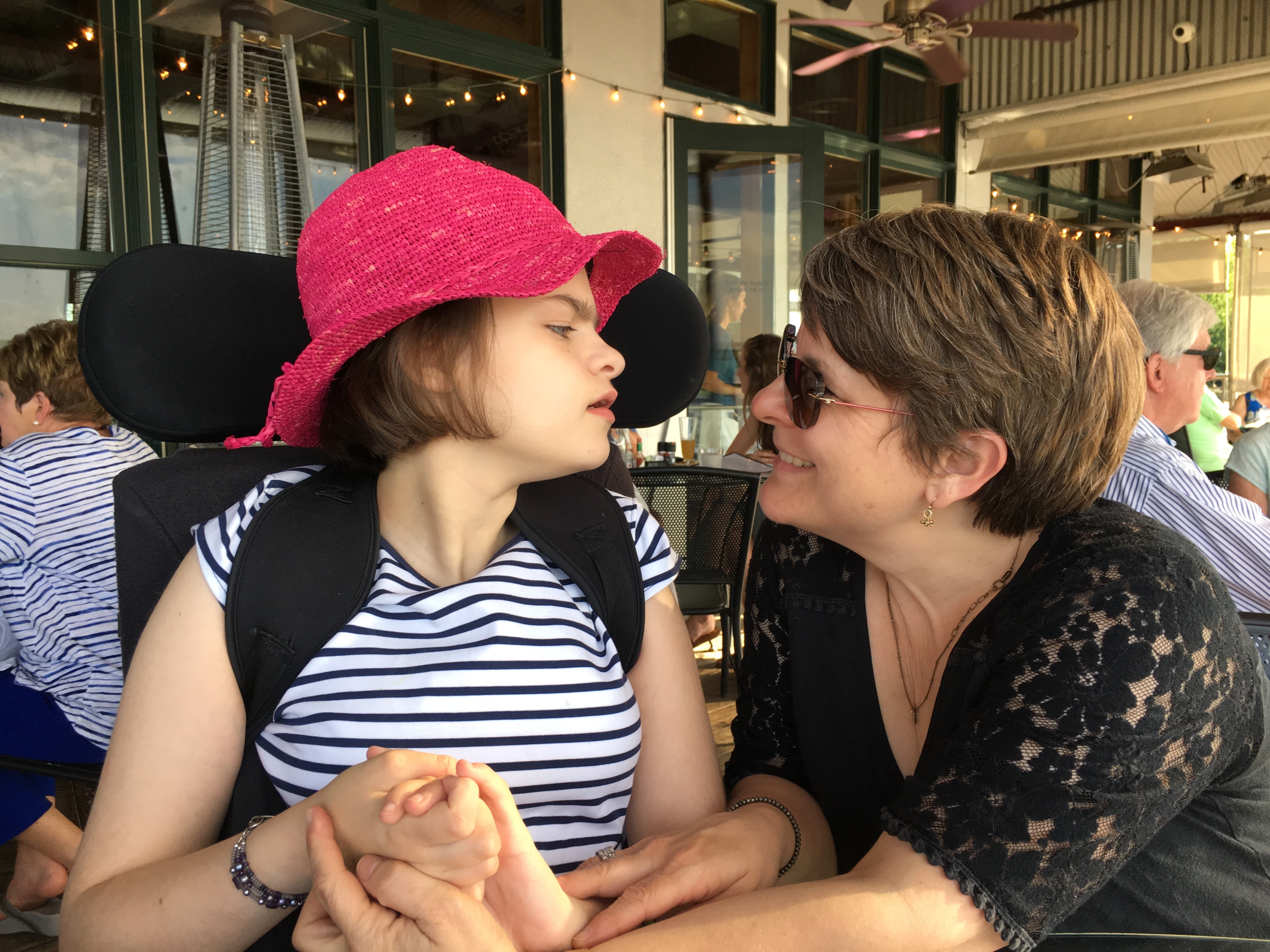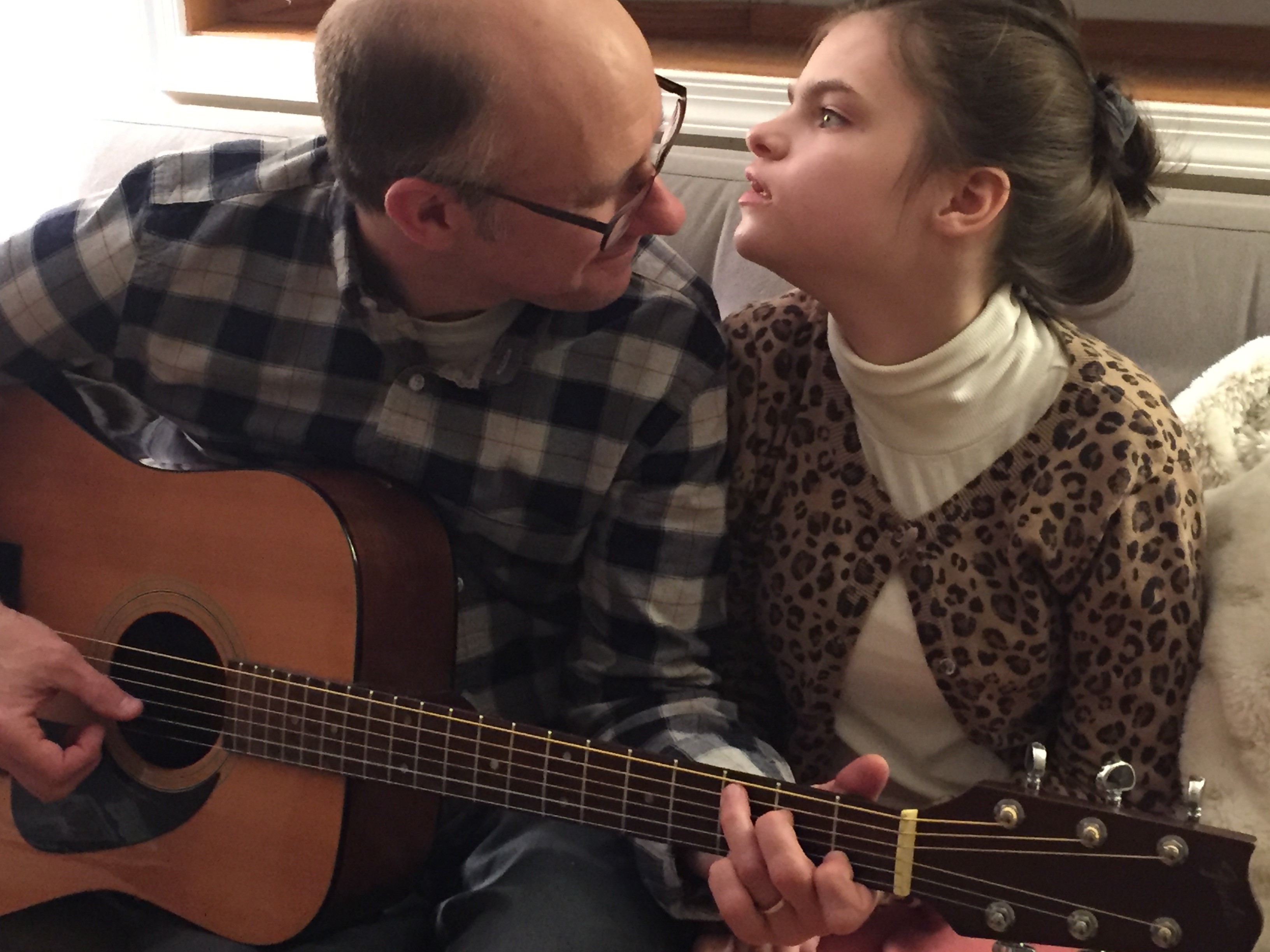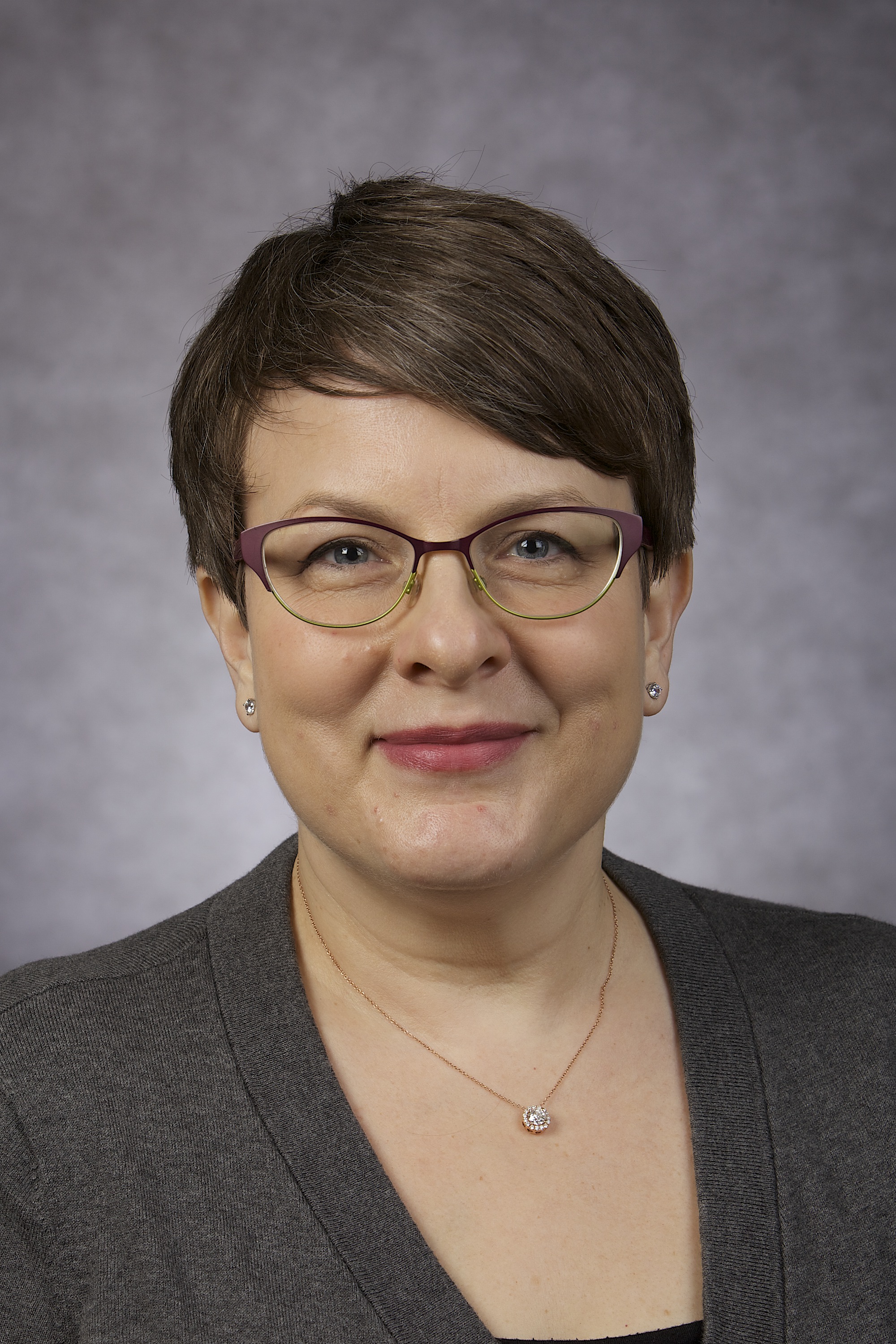
DePaul University professor Margaret Storey (right) with her daughter, Josie. Storey was recently named Illinois Mother of the Year for her work in the community and at home in raising awareness for issues like Aicardi syndrome, SUDEP, adult changing tables and medical marijuana. (Photo courtesy of Margaret Storey)

Jonathan Heller (left) with his daughter, Josie. In addition to playing and listening to music together, Heller and Josie enjoy watching Liverpool FC and professional cycling on TV. (Photo courtesy of Margaret Storey)
CHICAGO — For Margaret Storey, epilepsy awareness advocacy isn’t just a passing interest, it’s a life mission to honor her daughter Josie’s daily battle with Aicardi syndrome, a complex and rare seizure condition that affects almost exclusively girls.
In recognition of her work in the community and at home, Storey was named the 2020 Illinois Mother of the Year, becoming the 70th woman in Illinois history to receive the honor. She is now on the ballot for National Mother of the Year, which will be announced April 21 at the American Mothers’ Golden Rule Grant Fund gala in Washington D.C. In her role, Storey will represent Illinois mothers during visits with members of U.S. Congress.
“I have mixed feelings about winning this award,” said Storey, a professor of Civil War and Southern history and associate dean for new initiatives in DePaul University’s College of Liberal Arts and Social Sciences. “In one sense, it’s a huge honor. It’s also complicated to be recognized for work that you do because you’re trying to improve your child’s — and other children’s — lives. They are the ones who do the really hard work. But it’s wonderful to have the chance to bring more attention to those realities.”
Storey and her husband, Jonathan Heller, raise Josie with help from their caregiver Jessica and extended family. Josie’s condition — Aicardi syndrome — is the result of a random genetic mutation that occurs in utero in about 1 in 105,000-167,000 babies in the U.S., according to Genetics Home Reference. The syndrome has three classic markers: agenesis of the corpus callosum, a devastating form of epilepsy called infantile spasms, and certain retinal abnormalities.
Seizures for Josie began at the age of 3 months, often as many as 40 per day, according to Storey. Medications reduced the seizures to about 10 a day by the age of 1, and now at the age of 16, since beginning a pharmaceutical form of cannabis, Josie averages about 2 seizures daily, with a few seizure-free days sprinkled in.
 DePaul University professor Margaret Storey. (DePaul University/Jeff Carrion)
DePaul University professor Margaret Storey. (DePaul University/Jeff Carrion)“It’s a constant feature of her life and part of what’s normal for us,” explained Storey. “The seizures and the medication had a devastating effect on her development — she is nonverbal and unable to walk independently. She needs assistance in every aspect of life.”
Despite the challenges, Josie lives a full life. She goes to a public school for students with disabilities; communicates with classmates and family using a device she activates with her eyes; travels with her family on road trips all over the country; enjoys all kinds of music (from Karmin and Emeli Sande to bluegrass and jazz); and loves to watch Liverpool FC and professional cycling with her dad.
“She’s an incredible person,” said Storey. “She’s determined and resilient, loving and smart. She has a deep intelligence. She’s such a gift to us.”
In the community, Storey is a member of the Ann & Robert H. Lurie Children’s Hospital of Chicago’s policy, advocacy and community engagement committee, and a parent convener on their family advisory board. She also serves as a member of the board of directors for the Danny Did Foundation in Evanston, Illinois, and as a member of the pediatric epilepsy learning healthcare system committee at the Cornell-Weill Medical Center, New York. In the past three years, she’s served as a panelist at an Epilepsy Foundation event and at a Child Neurology Foundation symposium on Sudden Unexpected Death in Epilepsy (SUDEP). She’s an advocate for medical marijuana, adult-sized changing tables in public bathrooms and SUDEP awareness.
“When Josie was little it was very difficult, painful and frightening,” said Storey. “For a while, there was this sense that if she could be happy, we would be OK, that that would be enough. Soon, though, it became important to make meaning out of this misfortune. If some other family, some other child could benefit because I helped educate or helped change a law, I wanted to do that.”
For Guillermo Vasquez de Velasco, dean of DePaul’s College of Liberal Arts and Social Sciences, Storey lives the life modeled by St. Vincent de Paul, the university’s namesake.
“I frequently explain that the liberal arts provide the intellectual scaffolding that allows us to be empathic and therefore be extraordinary collaborators,” he said. “I have collaborated with many people in my life but I have never encountered someone with the phenomenal empathy that Margaret displays in her advocacy for social justice. She effectively delivers on the Vincentian question, ‘What Must Be Done,’ every single day.”
###
Source:
Margaret Storey
773-325-7482
Media contact:
Russell Dorn
312-362-7128